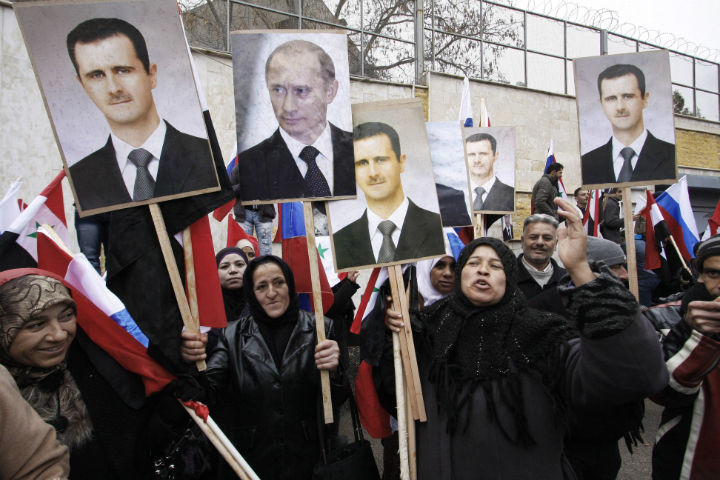As U.S. officials raise concerns about an increased Russian military presence in Syria, a Nobel Peace Prize-winning conflict negotiator claims western leaders “ignored” a Russian plan that might have seen Syrian dictator Bashar al-Assad resign three years ago.

The U.S., France and U.K. brushed aside the plan, the Guardian reported former Finnish president and 2008 Nobel laureate Martti Ahtisaari saying in an exclusive interview, even as the country’s civil war grew more brutal and millions of people were forced to flee their homes — contributing to what is now the greatest refugee crisis the world has seen in decades.
“It was an opportunity lost in 2012,” Ahtisaari said of the plan laid out by Russian ambassador to the United Nations Vitaly Churkin, who also served as Russia’s ambassador to Canada from 1998 to 2003.
READ MORE: Russian forces expanding major airport in Syrian province: monitoring group
Ahtisaari said Churkin had a three-point plan to strike a peace deal between the Assad regime and opposition groups to end the civil war that has, since 2011, claimed the lives of more than 220,000 Syrians.
“He said three things: One – we should not give arms to the opposition. Two – we should get a dialogue going between the opposition and Assad straight away. Three – we should find an elegant way for Assad to step aside,” the Guardian reported him saying.
Ahtisaari claimed the U.S., U.K and France — all permanent members of the U.N Security Council along with Russia and China — weren’t interested because they felt Assad’s days were numbered.
“Nothing happened because I think all these, and many others, were convinced that Assad would be thrown out of office in a few weeks so there was no need to do anything.”
Ahtisaari’s claims were refuted by another European diplomat, whom the Guardian did not name, and by Sir John Jenkins, the International Institute for Strategic Studies’ executive director for the Middle East.
“And even then I’d have wanted to be sure it wasn’t a Putin trick to draw us into a process that ultimately preserved Assad’s state under a different leader but with the same outcome.”
READ MORE: Israeli defence chief: Russian troops already in Syria
It’s unknown whether a purported Russian plan could have ended the war and prevented the displacement of more than half of Syria’s population — more than 4 million refugees who’ve fled to other countries and approximately 7.6 million displaced internally — and prevented the rise of ISIS in Syria. Other attempts at a peace deal have fallen apart.
But on Tuesday Putin reaffirmed Russia’s military aid to the Assad regime, and its fight against rebel groups and extremists like ISIS, would continue.
Speaking in Tajikistan on, he said the situation in Syria would be “worse than Libya” without his country’s military assistance.
But now evidence appears to be mounting, showing just how much Russia is intervening to support longtime ally Assad.
“We have seen indications in recent days that Russia has moved people and things into the area around Latakia, and the airbase there,” CNN reported Pentagon spokesman Capt. Jeff Davis saying Monday.
READ MORE: Obama warns Russia on helping arm Syrian government to fight ISIS
Foreign Policy on Tuesday, however, published satellite images highlighting the construction of an apparent air base near the port city.
Columnist Jeffery Lewis wrote the developments point to not just a failure of U.S. (and Western) policy regarding the war in Syria but also the grim outlook for both the bloody conflict and the humanitarian crisis spreading far beyond its borders.
“What Russia has done, however, is make it clear that it will not let Assad fall. He can’t win, but Russia won’t let him lose. That dooms Syria to what looks like endless war, as Assad fights to the last man.”
International involvement in Syria has largely focused on combating ISIS, through U.S.-led airstrikes and support for Kurdish and so-called moderate opposition groups.
But it’s the Assad regime’s forces and allied armed groups who are blamed for thousands more deaths than those caused by ISIS.
Citing numbers from the U.K.-based Syrian Network for Human Rights, the Washington Post reported last week ISIS militants killed 1,131 people in Syria in the first seven months of 2015, while the Assad regime and “pro-government militias” killed 7,894 people.



Comments